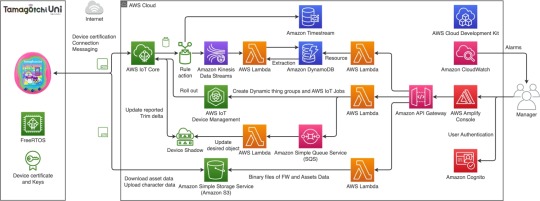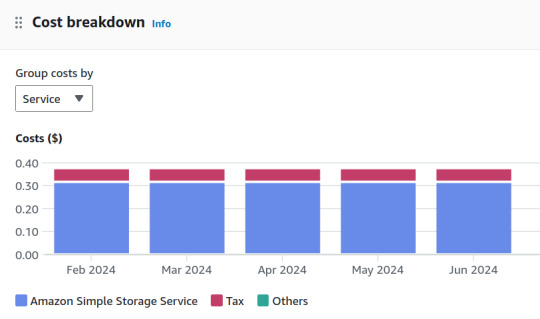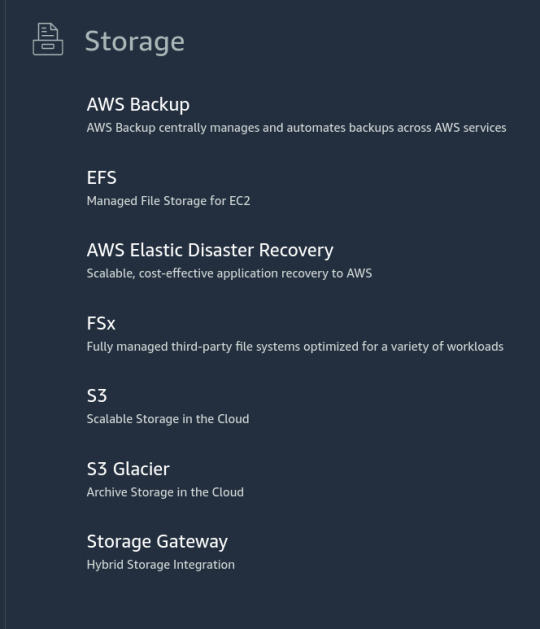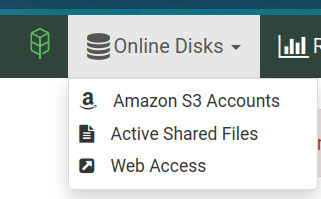#Amazon’s AWS
Text
Amazon’s AWS to Invest Billions in Italy Data Centers

Amazon’s AWS is talking with Italy to put a lot of money into growing its data center work there. They are still figuring out how much to spend and where to do it. AWS might make its Milan spot bigger or set up a new one.
AWS and Italy’s people haven’t said anything about these talks. AWS opened its first cloud area in Italy in 2020, spending 2 billion euros by 2029. Big names in Italy like Ferrari and Assicurazioni Generali use their service.
AWS recently unveiled a 15.7 billion euro investment in Spain. This replaces a previous plan of 2.5 billion euros announced in 2021. However, the investment in Italy may not match Spain’s scale. An official announcement is not expected soon.
AWS plans to spend 7.8 billion euros in Germany by 2040. The firm is also making tech for telecom customers. Telefonica Deutschland moved 1 million customers to AWS’s cloud recently. Last year, AWS said it would keep data on EU servers. This is to keep data safe for the government and special industries.
Read More:(https://theleadersglobe.com/business/amazons-aws-to-invest-billions-in-italy-data-centers/)
#Amazon’s AWS#data center#global leader magazine#the leaders globe magazine#leadership magazine#world's leader magazine#article#best publication in the world#news#magazine#business
0 notes
Text
Amazon’s financial shell game let it create an “impossible” monopoly

I'm on tour with my new, nationally bestselling novel The Bezzle! Catch me in TUCSON (Mar 9-10), then San Francisco (Mar 13), Anaheim, and more!

For the pro-monopoly crowd that absolutely dominated antitrust law from the Carter administration until 2020, Amazon presents a genuinely puzzling paradox: the company's monopoly power was never supposed to emerge, and if it did, it should have crumbled immediately.
Pro-monopoly economists embody Ely Devons's famous aphorism that "If economists wished to study the horse, they wouldn’t go and look at horses. They’d sit in their studies and say to themselves, ‘What would I do if I were a horse?’":
https://pluralistic.net/2022/10/27/economism/#what-would-i-do-if-i-were-a-horse
Rather than using the way the world actually works as their starting point for how to think about it, they build elaborate models out of abstract principles like "rational actors." The resulting mathematical models are so abstractly elegant that it's easy to forget that they're just imaginative exercises, disconnected from reality:
https://pluralistic.net/2023/04/03/all-models-are-wrong/#some-are-useful
These models predicted that it would be impossible for Amazon to attain monopoly power. Even if they became a monopoly – in the sense of dominating sales of various kinds of goods – the company still wouldn't get monopoly power.
For example, if Amazon tried to take over a category by selling goods below cost ("predatory pricing"), then rivals could just wait until the company got tired of losing money and put prices back up, and then those rivals could go back to competing. And if Amazon tried to keep the loss-leader going indefinitely by "cross-subsidizing" the losses with high-margin profits from some other part of its business, rivals could sell those high margin goods at a lower margin, which would lure away Amazon customers and cut the supply lines for the price war it was fighting with its discounted products.
That's what the model predicted, but it's not what happened in the real world. In the real world, Amazon was able use its access to the capital markets to embark on scorched-earth predatory pricing campaigns. When diapers.com refused to sell out to Amazon, the company casually committed $100m to selling diapers below cost. Diapers.com went bust, Amazon bought it for pennies on the dollar and shut it down:
https://www.theverge.com/2019/5/13/18563379/amazon-predatory-pricing-antitrust-law
Investors got the message: don't compete with Amazon. They can remain predatory longer than you can remain solvent.
Now, not everyone shared the antitrust establishment's confidence that Amazon couldn't create a durable monopoly with market power. In 2017, Lina Khan – then a third year law student – published "Amazon's Antitrust Paradox," a landmark paper arguing that Amazon had all the tools it needed to amass monopoly power:
https://www.yalelawjournal.org/note/amazons-antitrust-paradox
Today, Khan is chair of the FTC, and has brought a case against Amazon that builds on some of the theories from that paper. One outcome of that suit is an unprecedented look at Amazon's internal operations. But, as the Institute for Local Self-Reliance's Stacy Mitchell describes in a piece for The Atlantic, key pieces of information have been totally redacted in the court exhibits:
https://www.theatlantic.com/ideas/archive/2024/02/amazon-profits-antitrust-ftc/677580/
The most important missing datum: how much money Amazon makes from each of its lines of business. Amazon's own story is that it basically breaks even on its retail operation, and keeps the whole business afloat with profits from its AWS cloud computing division. This is an important narrative, because if it's true, then Amazon can't be forcing up retail prices, which is the crux of the FTC's case against the company.
Here's what we know for sure about Amazon's retail business. First: merchants can't live without Amazon. The majority of US households have Prime, and 90% of Prime households start their ecommerce searches on Amazon; if they find what they're looking for, they buy it and stop. Thus, merchants who don't sell on Amazon just don't sell. This is called "monopsony power" and it's a lot easier to maintain than monopoly power. For most manufacturers, a 10% overnight drop in sales is a catastrophe, so a retailer that commands even a 10% market-share can extract huge concessions from its suppliers. Amazon's share of most categories of goods is a lot higher than 10%!
What kind of monopsony power does Amazon wield? Well, for one thing, it is able to levy a huge tax on its sellers. Add up all the junk-fees Amazon charges its platform sellers and it comes out to 45-51%:
https://pluralistic.net/2023/04/25/greedflation/#commissar-bezos
Competitive businesses just don't have 45% margins! No one can afford to kick that much back to Amazon. What is a merchant to do? Sell on Amazon and you lose money on every sale. Don't sell on Amazon and you don't get any business.
The only answer: raise prices on Amazon. After all, Prime customers – the majority of Amazon's retail business – don't shop for competitive prices. If Amazon wants a 45% vig, you can raise your Amazon prices by a third and just about break even.
But Amazon is wise to that: they have a "most favored nation" rule that punishes suppliers who sell goods more cheaply in rival stores, or even on their own site. The punishments vary, from banishing your products to page ten million of search-results to simply kicking you off the platform. With publishers, Amazon reserves the right to lower the prices they set when listing their books, to match the lowest price on the web, and paying publishers less for each sale.
That means that suppliers who sell on Amazon (which is anyone who wants to stay in business) have to dramatically hike their prices on Amazon, and when they do, they also have to hike their prices everywhere else (no wonder Prime customers don't bother to search elsewhere for a better deal!).
Now, Amazon says this is all wrong. That 45-51% vig they claim from business customers is barely enough to break even. The company's profits – they insist – come from selling AWS cloud service. The retail operation is just a public service they provide to us with cross-subsidy from those fat AWS margins.
This is a hell of a claim. Last year, Amazon raked in $130 billion in seller fees. In other words: they booked more revenue from junk fees than Bank of America made through its whole operation. Amazon's junk fees add up to more than all of Meta's revenues:
https://s2.q4cdn.com/299287126/files/doc_financials/2023/q4/AMZN-Q4-2023-Earnings-Release.pdf
Amazon claims that none of this is profit – it's just covering their operating expenses. According to Amazon, its non-AWS units combined have a one percent profit margin.
Now, this is an eye-popping claim indeed. Amazon is a public company, which means that it has to make thorough quarterly and annual financial disclosures breaking down its profit and loss. You'd think that somewhere in those disclosures, we'd find some details.
You'd think so, but you'd be wrong. Amazon's disclosures do not break out profits and losses by segment. SEC rules actually require the company to make these per-segment disclosures:
https://scholarship.law.stjohns.edu/cgi/viewcontent.cgi?article=3524&context=lawreview#:~:text=If%20a%20company%20has%20more,income%20taxes%20and%20extraordinary%20items.
That rule was enacted in 1966, out of concern that companies could use cross-subsidies to fund predatory pricing and other anticompetitive practices. But over the years, the SEC just…stopped enforcing the rule. Companies have "near total managerial discretion" to lump business units together and group their profits and losses in bloated, undifferentiated balance-sheet items:
https://www.ucl.ac.uk/bartlett/public-purpose/publications/2021/dec/crouching-tiger-hidden-dragons
As Mitchell points you, it's not just Amazon that flouts this rule. We don't know how much money Google makes on Youtube, or how much Apple makes from the App Store (Apple told a federal judge that this number doesn't exist). Warren Buffett – with significant interest in hundreds of companies across dozens of markets – only breaks out seven segments of profit-and-loss for Berkshire Hathaway.
Recall that there is one category of data from the FTC's antitrust case against Amazon that has been completely redacted. One guess which category that is! Yup, the profit-and-loss for its retail operation and other lines of business.
These redactions are the judge's fault, but the real fault lies with the SEC. Amazon is a public company. In exchange for access to the capital markets, it owes the public certain disclosures, which are set out in the SEC's rulebook. The SEC lets Amazon – and other gigantic companies – get away with a degree of secrecy that should disqualify it from offering stock to the public. As Mitchell says, SEC chairman Gary Gensler should adopt "new rules that more concretely define what qualifies as a segment and remove the discretion given to executives."
Amazon is the poster-child for monopoly run amok. As Yanis Varoufakis writes in Technofeudalism, Amazon has actually become a post-capitalist enterprise. Amazon doesn't make profits (money derived from selling goods); it makes rents (money charged to people who are seeking to make a profit):
https://pluralistic.net/2023/09/28/cloudalists/#cloud-capital
Profits are the defining characteristic of a capitalist economy; rents are the defining characteristic of feudalism. Amazon looks like a bazaar where thousands of merchants offer goods for sale to the public, but look harder and you discover that all those stallholders are totally controlled by Amazon. Amazon decides what goods they can sell, how much they cost, and whether a customer ever sees them. And then Amazon takes $0.45-51 out of every dollar. Amazon's "marketplace" isn't like a flea market, it's more like the interconnected shops on Disneyland's Main Street, USA: the sign over the door might say "20th Century Music Company" or "Emporium," but they're all just one store, run by one company.
And because Amazon has so much control over its sellers, it is able to exercise power over its buyers. Amazon's search results push down the best deals on the platform and promote results from more expensive, lower-quality items whose sellers have paid a fortune for an "ad" (not really an ad, but rather the top spot in search listings):
https://pluralistic.net/2023/11/29/aethelred-the-unready/#not-one-penny-for-tribute
This is "Amazon's pricing paradox." Amazon can claim that it offers low-priced, high-quality goods on the platform, but it makes $38b/year pushing those good deals way, way down in its search results. The top result for your Amazon search averages 29% more expensive than the best deal Amazon offers. Buy something from those first four spots and you'll pay a 25% premium. On average, you need to pick the seventeenth item on the search results page to get the best deal:
https://scholarship.law.bu.edu/faculty_scholarship/3645/
For 40 years, pro-monopoly economists claimed that it would be impossible for Amazon to attain monopoly power over buyers and sellers. Today, Amazon exercises that power so thoroughly that its junk-fee revenues alone exceed the total revenues of Bank of America. Amazon's story – that these fees barely stretch to covering its costs – assumes a nearly inconceivable level of credulity in its audience. Regrettably – for the human race – there is a cohort of senior, highly respected economists who possess this degree of credulity and more.
Of course, there's an easy way to settle the argument: Amazon could just comply with SEC regs and break out its P&L for its e-commerce operation. I assure you, they're not hiding this data because they think you'll be pleasantly surprised when they do and they don't want to spoil the moment.

If you'd like an essay-formatted version of this post to read or share, here's a link to it on pluralistic.net, my surveillance-free, ad-free, tracker-free blog:
https://pluralistic.net/2024/03/01/managerial-discretion/#junk-fees

Image:
Doc Searls (modified)
https://www.flickr.com/photos/docsearls/4863121221/
CC BY 2.0
https://creativecommons.org/licenses/by/2.0/
#pluralistic#amazon#ilsr#institute for local self-reliance#amazon's antitrust paradox#antitrust#trustbusting#ftc#lina khan#aws#cross-subsidization#stacy mitchell#junk fees#most favored nation#sec#securities and exchange commission#segmenting#managerial discretion#ecommerce#technofeudalism
606 notes
·
View notes
Text

can’t even focus on homelander this season because firecracker is so hot
#the boys#amazon prime#firecracker#valorie curry#i need her#i know she’s awful or whatever but oh my god
104 notes
·
View notes
Note
It sucks that your pixiv was taken down hope that you can use another site/app for all of your beautiful art!!! maybe discord or dropbox?
No worries! I've mirrored everything to AO3 so things can be properly age-restricted/tagged/etc (I really liked that Pixiv had mature content settings, so I was looking for that in a replacement.) I'm using an AWS S3 bucket for hosting (it's linked in all the works, and there's a simple navigation system in place if you want to poke around.)
#like a year ago i was trying to hammer that s3 bucket into a gallery website lol.....#eventually i gave up bc i dont have nearly enough practice with aws or webdev in general to make that happen#and let me tell you. your s3 bucket does NOT want to be a website. IT REALLY DOESNT#anyway. i chose ao3 and aws because theyre both ok with hosting any content FOREVER#so i'll never have to deal with getting nuked again unless something very significant happens at amazon (god forbid)#asks
36 notes
·
View notes
Note
Haepheastus having proto robot servants is undertapped aspect of his characters, especially if you want to treat his creations like his daughters. And in my opinion, this actually could work in Wonder Woman who uses a lot of greek mythology characters. One of them could become an Amazon and fight with wonder woman.
I haven’t watched this show but I really dig Hephaestus’s personality, he’s actually smart and capable like in mythology (unlike his GOW version). Like I can genuinely imagine this version humiliating and divorcing Aphrodite and then marrying Aglaia.
youtube
I don’t really care for Wonder Woman’s interpretation of mythology, the goddesses are too girlbossyfied and there is that one comic that portrays the Amazons as rapists even tho it’s ironically not how it is in mythology despite how ppl expect it to be, also with Ares being cartoonishly evil despite being the father of the Amazons (yeah believe it or not just bc I don’t like ppl woobifying him doesn’t mean I like villainizing him) tho robot amazons would be cool af.
#I like how he has a shit eating grin the whole time good for him lol#Ares voice is awful tho#I liked Historia tho#the comic I mean#greek mythology#ancient greek mythology#greek pantheon#hephaestus god#hephaistos#hephaestus#justice leauge unlimited#amazons
20 notes
·
View notes
Text
My #1 advice for people moving out is to NOT buy nonstick cookware... not only is the lifespan of nonstick a MAXIMUM of 7 years (usually more like 2-5 years) but teflon, aka Polytetrafluoroethylene-- the plastic coating that makes the cookware nonstick, infuses microplastics into your food.
New cookware sets can cost hundreds of dollars so my advice is to look for 100% stainless steel cookware in thrift stores. Safer, cheaper, & instead of needing to replace every 2-7 years they can potentially last you the entire rest of your life AND they won't start shedding plastic into your food
#x#PS plastic food storage containers are also not ideal... I'm going to replace all mine with glass containers when i can afford it#i bought everything nonstick thinking it would be easier to deal with. i wanted to be cost-effective & save time so buying cheap nonstick#seemed like a good idea but every single nonstick thing I bought either already needed to be tossed in the trash or the teflon is flaking#aka they have become unsafe to use. but i dont have the money to replace all my fucking kitchenware!!!!!#today the casserole dishes that i bought 2.5 years ago are going in the trash. fucking waste of money and awful for the planet#boiling water to get rid of microplastics in a flaking nonstick pot... my life is a joke LMFAOOO#i was going to put a brand suggestion for nonstick here based on what lasted the longest for anyone who absolutely NEEDS nonstick#but when i search for who owns that brand and then searched with israel in quotes... first result was them being voted brand of the year#in israel... so never mind... dude fuck all these big companies i fucking hate this shit#oh btw ceramic is a good nonstick alternative but all my ceramics lasted less than 3 years... their lifespan is about 2 years apparently#theres way too many tags on this already but for anyone who reads them all HIIII and also you can literally find better furniture#on the side of the road than you will ever find on amazon or from ikea or where the fuck ever
28 notes
·
View notes
Text
The Boys season 4 trailer rambles 2/2
there will be some gore in this one so y'all been warn but at the same time it was on the trailer so...

who the fuck is this? I thought it was Victoria Neuman at first? but she seems to be turning into a different person behind the peel-off mask, is she Hughie's new GF, is it Victoria and the lighting of the scene makes it seem off? (like she looks black as she peels her skin instead of the olive complexion of the damaged face)


then we have mystery person 2? they clearly just killed off people here and Hughie and Annie? (is it annie I dunno her hair looks so dark but again lighting and my screeen being eh...)
I was hoping this scene below was Homelander's doing like his catharsis moment when he finally has revenge

but it might just be mystery person 2's doing before being found/spotted by Hughie and Annie.


I wanna believe this are all a sequence of events, Homie sitting down with Mirrorlander speaking to him, he decides is time to enact revenge, he flys away finds a lab in the floors bellow or the guys apartment, kills the guy inside (who looks to be wearing a labcoat) and then cleans his tears.


this on the other hand i do feel bad if HL is being a hypocrite and kills defective supes just like the scientist before him, and if he is here forcing these scientist to do some questionable things on his behalf... go for it babygirl you do you, be happy, torture these fuckers cuz i bet they are all Vought staff anyways so they all probably monstrous people too.

I probably can explain this as just Kripke being himself and the writers being edgelords (so lame) but why are the V-powered animals so aggreasive what is in the formula that is causing these mostly docile and domesticated animals to become hyper-violent? we even see a group of sheep kill and eat a man, like i get chickens killing people bcuz chickens are just viscious animals at times but sheep? like did the compound V made them carnivorous suddenly? can their teeth or stomach even handle meat? is this by design? or did Victoria Neuman feed V to animals as a way to safely test her supe killing virus (as their farm looks like the one where MM and Butcher find the Gen V virus leg) and somehow we learn that V makes animals violent? Is that why Supes are so prone to violence, is it a side effect of compound V? Is that why HL is this insane?

am also insanely curious as to what's going on here? are they chasing after Kimiko, Black Noir Dos, The Deep as this might be in the flat iron building and there is spots of blood just scattered on the steps.
there was also the fight with deep and starlight and butcher and BN v.2 but I imagine the boys location gets leaked and thats just the Seven retaliating.
#the boys amazon#homelander#the bosy season 4#gen v kids cameo#editing spelling errors i tend to skip words when i type bcuz i skip words when i talk too and my typing is awful
16 notes
·
View notes
Text
Actually heartbreaking how terrible most LotR merch is and how nonexistent The Hobbit and Rings of Power merch is
#I am a merch girlie first#and the stuff for lotr is just horrendous#there are a couple gems but mostly it’s awful#and I’ve found like one or two Hobbit things#and literally no rop stuff#which is so weird to me that Amazon hasn’t released any?#like when I watched good omens they had their own stuff and it was linked on the video page and everything#idk here’s holding out hope#or I’ll just have to make my own I guess#probably will anyway because it doesn’t seem the general public shares my obsessive love of Elrond 😅
8 notes
·
View notes
Text
The internet is not a (link)dump truck

Monday (October 2), I'll be in Boise to host an event with VE Schwab. On October 7–8, I'm in Milan to keynote Wired Nextfest.

The second decade of the 21st century is truly a bounteous time. My backyard has produced a bumper crop of an invasive species of mosquito that is genuinely innovative: rather than confining itself to biting in the dusk and dawn golden hours, these stinging clouds of flying vampires bite at every hour that God sends:
https://themagnet.substack.com/p/the-magnet-081-war-with-mosquitoes
Here in the twilight of capitalism's planet-devouring, half-century orgy of wanton destruction, there's more news every day than I can possibly write a full blog post about every day, and as with many weeks, I have arrived at Saturday with a substantial backlog of links that didn't fit into the week's "Hey look at this" linkdumps.
Thus, the eighth installment in my ongoing, semiregular series of Saturday linkdumps:
https://pluralistic.net/tag/linkdump/
This week, the miscellany begins with the first hesitant signs of an emerging, post-neoliberal order. The FTC, under direction of the force-of-nature that is Lina Khan, has brought its long-awaited case antitrust case against Amazon. I am very excited about this. Disoriented, even.
When was the last time you greeted every day with a warm feeling because high officials in the US government were working for the betterment of every person in the land? It's enough to make one giddy. Plus, the New York Times let me call Amazon "the apex predator of our platform era"! Now that it's in the "paper of record," it's official:
https://pluralistic.net/ApexPredator
Now, lefties have been predicting capitalism's imminent demise since The Communist Manifesto, but any fule kno that the capitalist word for "crisis" also translates as "opportunity." Like the bedbugs that mutated to thrive in clouds of post-war DDT, capitalism has adapted to each crisis, emerging in a new, more virulent form:
https://boingboing.net/2023/09/30/bedbugs-take-paris.html
But "anything that can't go on forever will eventually stop" (Stein's Law). Perhaps our mistake was in waiting for capitalism to give way to socialism, rather than serving as a transitional phase between feudalism and…feudalism.
What's the difference between feudalism and capitalism? According to Yanis Varoufakis, it comes down to whether we value rents (income you get from owning things) over profits (income you get from doing things):
https://pluralistic.net/2023/09/28/cloudalists/#cloud-capital
By that metric, the FTC's case against Amazon is really a case against feudalism. Through predatory pricing and acquisitions, Amazon has turned itself into a chokepoint that every merchant, writer and publisher has to pass through in order to reach their customers. Amazon charges a fortune to traverse that chokepoint (estimates range from 45% to 51% of gross revenues) and then forces sellers to raise their prices everywhere else when they hike their Amazon prices so they can afford Amazon's tolls. It's "an economy-wide hidden tax":
https://www.thebignewsletter.com/p/the-ftc-sues-to-break-up-amazon-over
Now, feudalism isn't a straightforward proposition. Like, are you sure you mean feudalism? Maybe you mean "manorialism" (they're easy to mix up):
https://locusmag.com/2021/01/cory-doctorow-neofeudalism-and-the-digital-manor/
Plus, much of what we know about the "Dark Ages" comes from grifter doofuses like Voltaire, a man who was capable of dismissing the 800 year Holy Roman Empire with a single quip ("neither holy, roman, nor an empire"). But the reality is a lot more complicated, gnarly and interesting.
That's where medievalist Eleanor Janeaga comes in, and her "Against Voltaire, or, the shortest possible introduction to the Holy Roman Empire" is a banger:
https://going-medieval.com/2023/09/29/against-voltaire-or-the-shortest-possible-introduction-to-the-holy-roman-empire/
Now, while it's true that Enlightenment thinkers gave medieval times a bum rap, it's likewise true that a key element of Enlightenment justice is transparency: justice being done, and being seen to be done. One way to distinguish "modern" justice from "medieval" trials is to ask whether the public is allowed to watch the trial, see the evidence, and understand the conclusion.
Here again, there is evidence that capitalism was a transitional phase between feudalism and feudalism. The Amazon trial has already been poisoned by farcical redactions, in which every key figure is blacked out of the public record:
https://prospect.org/power/2023-09-27-redacted-case-against-amazon/
This is part of a trend. The other gigantic antitrust case underway right now, against Google, has turned into a star chamber as well, with Judge Amit P Mehta largely deferring to Google's frequent demands to close the court and seal the exhibits:
https://usvgoogle.org/trial-update-9-22
Google's rationale for this is darkly hilarious: if the public is allowed to know what's happening in its trial, this will be converted into "clickbait," which is to say, "The public is interested in this case, and if they are informed of the evidence against us, that information will be spread widely because it is so interesting":
https://www.bigtechontrial.com/p/secrecy-is-systemic
Thankfully, this secrecy is struggling to survive the public outrage it prompted. While the court's Zoom feed has been shuttered and while Judge Mehta is still all-too-willing to clear the courtroom during key testimony, at least the DoJ's exhibits aren't being sealed at the same clip as before:
https://www.theverge.com/2023/9/27/23892215/google-search-antitrust-trial-documents-public-again-judge-mehta-rules
In 2023, the world comes at you fast. There's an epic struggle over the future of corporate dominance playing out all around us. I mean, there are French antitrust enforcers kicking down doors of giant tech companies and ransacking their offices for evidence of nefarious anticompetitive plots:
https://www.theverge.com/2023/9/28/23894863/nvidia-offices-raided-french-competition-authority
As ever, the question is "socialism or barbarism." But don't say that too loud: in America, socialism is a slur, one that dates back to the Reconstruction era, when pro-slavery factions called Black voting "socialism in South Carolina."
Ever since, white nationalists used "socialism" make Americans believe that "socialism" was an "extremist" view, so they'd stand by while everyone from Joe McCarthy to Donald Trump smeared their opponents as "Marxists":
https://thehill.com/homenews/campaign/4066499-trump-paints-2024-campaign-as-righteous-crusade/
As Heather Cox Richardson puts it for The Atlantic, "There is a long-standing fight over whether support for the modern-day right is about taxes or race. The key is that it is about taxes and race at the same time":
https://www.theatlantic.com/ideas/archive/2023/09/american-socialism-racist-origins/675453/
The cruelty isn't the point, in other words. Cruelty is the tactic. The point is power. Remember, no war but class war. All of this is in service to paying workers less so that bosses and investors can have more.
Take "essential workers," everyone from teachers to zookeepers, nurses to librarians, EMTs to daycare workers. All of these "caring" professions are paid sub-living wages, and all of these workers are told that "they matter too much to earn a living wage":
https://www.okdoomer.io/praise-doesnt-pay/
The "you matter too much to pay" mind-zap is called "vocational awe," a crucial term introduced by Ettarh Fobazi in her 2018 paper:
https://www.inthelibrarywiththeleadpipe.org/2018/vocational-awe/
Vocational awe is how creative workers – like the writers who just won their strike and the actors who are still fighting – are conned into working at starvation wages. As the old joke goes, "What, and give up show-business?"
https://ask.metafilter.com/117904/Whats-the-joke-thas-hase-the-punchline-what-and-give-up-show-business
In this moment of Big Tech-driven, AI-based wage suppression, mass surveillance, corruption and inequality, perhaps we should take a moment to remind ourselves that cyberpunk was a warning, not a suggestion. Or, more to the point, the warning was about high-tech corporate takeover of our lives, and the suggestion was that we could seize the means of computation (a synonym for William Gibson's "the street finds its own use for things"):
http://www.seizethemeansofcomputation.org/
We are living in a lopsided cyberpunk future, long on high-tech corporate takeover, short of computation seizing. This point is made sharply in JWZ's "Dispatch From The Cyberpunk City," which is beautifully packaged as a Hypercard stack that you run on an in-browser Mac Plus emulator from the Internet Archive:
https://www.jwz.org/blog/2023/09/neuroblast-dispatch-from-the-cyberpunk-city/
Cast your gaze ahead, to the near future: Public space has all but disappeared. Corporate landlords use AI-powered robots to harass the homeless. The robots, built slick and white with an R2-D2 friendliness now most resemble giant butt plugs covered in graffiti and grime.
Science fiction doesn't have to be a warning. It can also be a wellspring of hope. That's what I tried to do with The Lost Cause, my forthcoming Green New Deal novel, which Bill McKibben called "The first great YIMBY novel":
https://us.macmillan.com/books/9781250865939/the-lost-cause
Writing a hopeful novel of ecological, social and economic redemption, driven by solidarity, repair, and library socialism, was a powerful tonic against despair in this smoke-smothered, flooded, mosquito-bitten time. And while the book isn't out yet, there are early indications I succeeded, like Kim Stanley Robinson's reaction, "Along with the rush of adrenaline I felt a solid surge of hope. May it go like this."
And now, we have a concurring judgment from The Library Journal, who yesterday published their review, which concludes: "a thought-provoking story, with a message of hope in a near-future that looks increasingly bleak":
https://www.libraryjournal.com/review/the-lost-cause-2196385

If you'd like an essay-formatted version of this post to read or share, here's a link to it on pluralistic.net, my surveillance-free, ad-free, tracker-free blog:
https://pluralistic.net/2023/09/30/mesclada/#melange
#pluralistic#antitrust#amazon#opacity#impunity#vocational awe#cyberpunk#dystopia watch#hypercard#jwz#holy roman empire#voltaire#enlightenment#dark ages#history#eleanor janega#linkdump#linkdumps#the lost cause#science fiction#books
173 notes
·
View notes
Text
Bandai Explains Why They Adopted AWS for Tamagotchi Uni and Why NFC Didn’t Work

The partnership of Tamagotchi and Amazon Web Services is so interesting, and we love hearing more about it. Yuri Okamoto of the Bandai planning team of the Toy Division Global Toy Planning Department, who was in charge of the planning and development of the Tamagotchi Uni at Bandai, and Daisuke Sakammoto of the technical design team of the same department explain further why exactly Bandai adopted AWS for the new Tamagotchi Uni.
Mr. Okamoto explains that the first connectivity method was introduced in 1997 with the Tamagotchi Osutchi and Mesutchi. The purpose of this connectivity was for one character to be able to cross over into the other device.

Then in March of 2004, after the explosive boom of Tamagotchi calmed down, the Tamagotchi Plus model was introduced with new infrared communication. The infrared technology functionality was the exact function that was tailored in the heyday of feature phones in Japan, and it was possible not only to connect two Tamagotchi’s together, but also to mobile phones.

Newer models also introduced different types of connectivity, including NFC with the Tamagotchi 4U in 2014. NFC was aimed to allow Tamagotchi’s to connect together by touching the devices together. However, the communication speed of NFC was not very fast, so it did not become a user experience the communication would end when touched.

Tamagotchi M!X back in 2016 brought back the infrared connectivity. The Tamagotchi Meets back in 2018 then introduced Bluetooth connectivity on top of the infrared functionality which enable the ability to connect to a smartphone or tablet to use the application.
The Tamagotchi Smart which was released in the midst of the COVID-19 global pandemic where contact with people was suppressed. The Tamagotchi Smart allowed caretakers to interact with their Tamagotchi with the use of voice and touch, along with wearing your Tamagotchi Smart right on your wrist.

Mr. Okamoto then discusses how the Tamagotchi demand has been higher overseas than in Japan. The Tamagotchi Uni was sought out to unify the design and content of play sot hat Tamagotchi users around the world can enjoy the same Tamagotchi Uni globally.

The Tamagotchi Uni also introduced Wi-Fi for the first time. This enables the new Tamaverse feature, software updates, and more. There are a wide range of functions that should be independently implemented in the cloud infrastructure to realize the concept of the Tamagotchi Uni. AWS has great infrastructure capabilities and a range of sample documents to advance development.
Monoist asks if future models after the Tamagotchi Uni will feature cloud connectivity. Mr. Okamoto responds that there alway needs to be the core play that has always been featured in the Tamagotchi, and Bandai will consider how to do that with both hardware and software. So the cloud is not necessarily a requirement for the next generation model.
#tamapalace#tamagotchi#tmgc#tamatag#virtualpet#bandai#jp#yuriokamoto#yuri okamoto#daisukesakamoto#daisuke sakamoto#monoist#aws#amazonwebservices#amazon web services#nfc
27 notes
·
View notes
Text
TIL that AWS CEO Matt Garman is an unrepentant moron.
"Coding is just kind of like the language that we talk to computers. It's not necessarily the skill in and of itself," the executive said. "The skill in and of itself is like, how do I innovate? How do I go build something that's interesting for my end users to use?" [1]
I have never read an utterance more disconnected not just from the practical realities of development work, but from the very idea of materially productive work in general. These are the words of a chronic "ideas man" who has managed to delude himself into believing that labour does not exist, or at least holds no real value.
After all, his *very important* job does not require any amount of actual consideration or understanding of reality, so naturally he assumes that those of us with menial jobs where we actually have to *do things* are, I suppose, just making it up. Obviously our thoughts are equivalent to (and probably lesser than) those of the shiny new Ideas Machines that coincidentally don't come attached to a human body with pesky things like needs and limitations and rights.
(They also don't come attached to a source of Thought, but this will surely be patched into the next version.)
Fortunately for Mr. Garman, he lives in a walled, gilded village where things like quality and outcome and result don't need to matter.
"If you go forward 24 months from now, or some amount of time — I can't exactly predict where it is — it's possible that most developers are not coding" [ibid]
Yes of course, my lord. Whatever you say, my lord. If that is all, I'll be back to my desk, now.
---
6 notes
·
View notes
Note
My love for you is as big as your prostate


#homelander#ask homelander#the boys#the boys amazon#the boys tv#the boys series#//aw shit here we go…#//thanks a lot Kripke
11 notes
·
View notes
Text
2. Juli 2024
Mein Backup ist weg, aber wenigstens auf eine preisgünstige Art
Seit ein paar Wochen habe ich eine neue Kreditkarte. Jetzt bekomme ich eine Nachricht, dass 35 Cents durch "AWS EMEA" nicht abgebucht werden konnten, weil die Kreditkartendaten nicht mehr stimmen. Das sagt mir nichts. Eine Suche im Internet ergibt, dass es sich um Amazon Web Services handelt. Das sagt mir immer noch nicht sehr viel. Habe ich die mal benutzt?
Auf gut Glück gebe ich "aws.amazon.com" ein und versuche mich dort mit meiner Mailadresse einzuloggen. Noch bevor ich zur Passwortabfrage vorgedrungen bin, teilt mir die Seite mit, dass ich bitte "Passwort vergessen" wählen und mir ein neues Passwort vergeben soll. Ich klicke auf "Passwort vergessen" und bekomme eine Mail mit einem sehr langen, nicht anklickbaren Link. Ich kopiere den Link in meinen Browser und kann mir dann ein neues Passwort aussuchen. Aber nicht irgendeines, sondern eins mit ... ich ignoriere die Details, öffne meinen Passwortmanager und lasse den ein neues Passwort generieren. Das gebe ich zwei Mal ein. Dann kann ich mich einloggen, bin aber immer noch nicht drin. Erst muss ich meine Mailadresse verifizieren, das heißt, eine weitere Bestätigungsmail abwarten und auf den Link darin klicken. Dann muss ich meine Telefonnummer verifizieren. Dazu bekomme ich einen sechsstelligen Zahlencode und einen automatischen Anruf. Eine nicht ganz menschlich klingende Stimme fordert mich zur Eingabe des Zahlencodes auf. Jetzt kann ich mich einloggen und nachsehen, wofür die 35 Cent abgebucht werden sollten.
Auf dem Handy ist die Ansicht so defekt, dass ich gar nichts herausfinden kann. Ich logge mich auf dem Laptop ein und erfahre, dass ich erst meine Mailadresse ein zweites Mal verifizieren soll. Das kann ich aber auch überspringen und irgendwann in den nächsten 30 Tagen noch erledigen.
Ich zahle offenbar für den "Amazon Simple Storage Service":

Aber was ist drin in dieser Storage? Auf der Seite "Storage" kommt mir nichts bekannt vor.

Am ehesten vielleicht S3, denke ich, denn der Rest kommt mir noch unbekannter vor. Unter S3 besitze ich tatsächlich einen "General Purpose Bucket". Das klingt praktisch.
Mein Eimer hat einen langen kryptischen Namen. Darin ist ein Ordner "default". Im Ordner "default" sind viele andere Ordner mit langen kryptischen Namen. Keiner davon enthält irgendwas Verständliches.
Vielleicht kann ich ja herausfinden, seit wann ich diese 35 Cent im Monat bezahle, und den Grund so identifizieren, denke ich. Aber die Übersicht über die Abrechnungen reicht nur ungefähr ein Jahr zurück.
In meinem Passwortmanager hat sich in der Zwischenzeit ein vager Zusammenhang zwischen Amazon AWS und JungleDisk ergeben, einem Cloud-Backup-Ding, das ich in einer sehr grauen Vorzeit einmal benutzt habe. Es ist so lange her, dass es das Techniktagebuch noch nicht gab, weshalb ich nirgends nachlesen kann, was ich eigentlich damit gemacht habe. JungleDisk ist inzwischen verkauft oder umbenannt worden. Die Seite www.myjungledisk.com weigert sich, mich zu erkennen.
Ich sehe in meinen Mails nach. Offenbar habe ich mich bei JungleDisk 2010 angemeldet und 2017 mal eine Nachricht über Änderungen bekommen. Diese Nachricht enthält einen anderen Link, unter dem ich mich auch wirklich einloggen kann.

Der Menüpunkt "Online Disks" sieht vielversprechend aus.

Aber alle Punkte führen nur zu der Aufforderung, mir einen Amazon S3 Account zuzulegen (habe ich doch schon) oder den Support zu kontaktieren (will ich nicht).
Keine Ahnung, was in diesem Backup drin war und ob es sich um einzigartige, wertvolle, unwiederbringliche Daten handelt. Schon für das Techniktagebuch würde ich eigentlich gern weiterforschen, aber alle weiteren Schritte wirken noch viel verwickelter als die bisherigen und ich werde schon beim Drübernachdenken ganz lustlos. Ich glaube, ich lasse alles so, wie es jetzt ist. Irgendwann wird wegen der nicht bezahlten 35 Cent irgendwas gekündigt werden, und dann werde ich auf das unbekannte Backup noch weniger zugreifen können als jetzt schon.
(Kathrin Passig)
11 notes
·
View notes
Text
today's great work conversation:
"hey, I posted to that API you wrote, and the data that came out on the other side contains stuff from the database instead of my request body. is that a bug?"
"why did you submit a request body? there's no mention of one in the story. that API doesn't expect, or look at, a request body. how did you even decide what to put in the body?"
"well it was left over from a different test and I didn't remove it"
#programming stuff#fascinated by this idea that if you submit some arbitrary data to an API#it should do its best to make something out of it#i hijack Amazon by making an AWS call where I add a body of {“amazonsNewCeo”: “Ashley”} and the system automatically puts me in charge
34 notes
·
View notes
Text

The Comprehensive Guide to Web Development, Data Management, and More
Introduction
Everything today is technology driven in this digital world. There's a lot happening behind the scenes when you use your favorite apps, go to websites, and do other things with all of those zeroes and ones — or binary data. In this blog, I will be explaining what all these terminologies really means and other basics of web development, data management etc. We will be discussing them in the simplest way so that this becomes easy to understand for beginners or people who are even remotely interested about technology. JOIN US
What is Web Development?
Web development refers to the work and process of developing a website or web application that can run in a web browser. From laying out individual web page designs before we ever start coding, to how the layout will be implemented through HTML/CSS. There are two major fields of web development — front-end and back-end.
Front-End Development
Front-end development, also known as client-side development, is the part of web development that deals with what users see and interact with on their screens. It involves using languages like HTML, CSS, and JavaScript to create the visual elements of a website, such as buttons, forms, and images. JOIN US
HTML (HyperText Markup Language):
HTML is the foundation of all website, it helps one to organize their content on web platform. It provides the default style to basic elements such as headings, paragraphs and links.
CSS (Cascading Style Sheets):
styles and formats HTML elements. It makes an attractive and user-friendly look of webpage as it controls the colors, fonts, layout.
JavaScript :
A language for adding interactivity to a website Users interact with items, like clicking a button to send in a form or viewing images within the slideshow. JOIN US
Back-End Development
The difference while front-end development is all about what the user sees, back end involves everything that happens behind. The back-end consists of a server, database and application logic that runs on the web.
Server:
A server is a computer that holds website files and provides them to the user browser when they request it. Server-Side: These are populated by back-end developers who build and maintain servers using languages like Python, PHP or Ruby.
Database:
The place where a website keeps its data, from user details to content and settings The database is maintained with services like MySQL, PostgreSQL, or MongoDB. JOIN US
Application Logic —
the code that links front-end and back-end It takes user input, gets data from the database and returns right informations to front-end area.

Why Proper Data Management is Absolutely Critical
Data management — Besides web development this is the most important a part of our Digital World. What Is Data Management? It includes practices, policies and procedures that are used to collect store secure data in controlled way.
Data Storage –
data after being collected needs to be stored securely such data can be stored in relational databases or cloud storage solutions. The most important aspect here is that the data should never be accessed by an unauthorized source or breached. JOIN US
Data processing:
Right from storing the data, with Big Data you further move on to process it in order to make sense out of hordes of raw information. This includes cleansing the data (removing errors or redundancies), finding patterns among it, and producing ideas that could be useful for decision-making.
Data Security:
Another important part of data management is the security of it. It refers to defending data against unauthorized access, breaches or other potential vulnerabilities. You can do this with some basic security methods, mostly encryption and access controls as well as regular auditing of your systems.
Other Critical Tech Landmarks
There are a lot of disciplines in the tech world that go beyond web development and data management. Here are a few of them:
Cloud Computing
Leading by example, AWS had established cloud computing as the on-demand delivery of IT resources and applications via web services/Internet over a decade considering all layers to make it easy from servers up to top most layer. This will enable organizations to consume technology resources in the form of pay-as-you-go model without having to purchase, own and feed that infrastructure. JOIN US
Cloud Computing Advantages:
Main advantages are cost savings, scalability, flexibility and disaster recovery. Resources can be scaled based on usage, which means companies only pay for what they are using and have the data backed up in case of an emergency.
Examples of Cloud Services:
Few popular cloud services are Amazon Web Services (AWS), Microsoft Azure, and Google Cloud. These provide a plethora of services that helps to Develop and Manage App, Store Data etc.
Cybersecurity
As the world continues to rely more heavily on digital technologies, cybersecurity has never been a bigger issue. Protecting computer systems, networks and data from cyber attacks is called Cyber security.
Phishing attacks, Malware, Ransomware and Data breaches:
This is common cybersecurity threats. These threats can bear substantial ramifications, from financial damages to reputation harm for any corporation.
Cybersecurity Best Practices:
In order to safeguard against cybersecurity threats, it is necessary to follow best-practices including using strong passwords and two-factor authorization, updating software as required, training employees on security risks.
Artificial Intelligence and Machine Learning
Artificial Intelligence (AI) and Machine Learning (ML) represent the fastest-growing fields of creating systems that learn from data, identifying patterns in them. These are applied to several use-cases like self driving cars, personalization in Netflix.
AI vs ML —
AI is the broader concept of machines being able to carry out tasks in a way we would consider “smart”. Machine learning is a type of Artificial Intelligence (AI) that provides computers with the ability to learn without being explicitly programmed. JOIN US
Applications of Artificial Intelligence and Machine Learning: some common applications include Image recognition, Speech to text, Natural language processing, Predictive analytics Robotics.
Web Development meets Data Management etc.
We need so many things like web development, data management and cloud computing plus cybersecurity etc.. but some of them are most important aspects i.e. AI/ML yet more fascinating is where these fields converge or play off each other.
Web Development and Data Management
Web Development and Data Management goes hand in hand. The large number of websites and web-based applications in the world generate enormous amounts of data — from user interactions, to transaction records. Being able to manage this data is key in providing a fantastic user experience and enabling you to make decisions based on the right kind of information.
E.g. E-commerce Website, products data need to be saved on server also customers data should save in a database loosely coupled with orders and payments. This data is necessary for customization of the shopping experience as well as inventory management and fraud prevention.
Cloud Computing and Web Development
The development of the web has been revolutionized by cloud computing which gives developers a way to allocate, deploy and scale applications more or less without service friction. Developers now can host applications and data in cloud services instead of investing for physical servers.
E.g. A start-up company can use cloud services to roll out the web application globally in order for all users worldwide could browse it without waiting due unavailability of geolocation prohibited access.
The Future of Cybersecurity and Data Management
Which makes Cybersecurity a very important part of the Data management. The more data collected and stored by an organization, the greater a target it becomes for cyber threats. It is important to secure this data using robust cybersecurity measures, so that sensitive information remains intact and customer trust does not weaken. JOIN US
Ex: A healthcare provider would have to protect patient data in order to be compliant with regulations such as HIPAA (Health Insurance Portability and Accountability Act) that is also responsible for ensuring a degree of confidentiality between a provider and their patients.
Conclusion
Well, in a nutshell web-developer or Data manager etc are some of the integral parts for digital world.
As a Business Owner, Tech Enthusiast or even if you are just planning to make your Career in tech — it is important that you understand these. With the progress of technology never slowing down, these intersections are perhaps only going to come together more strongly and develop into cornerstones that define how we live in a digital world tomorrow.
With the fundamental knowledge of web development, data management, automation and ML you will manage to catch up with digital movements. Whether you have a site to build, ideas data to manage or simply interested in what’s hot these days, skills and knowledge around the above will stand good for changing tech world. JOIN US
#Technology#Web Development#Front-End Development#Back-End Development#HTML#CSS#JavaScript#Data Management#Data Security#Cloud Computing#AWS (Amazon Web Services)#Cybersecurity#Artificial Intelligence (AI)#Machine Learning (ML)#Digital World#Tech Trends#IT Basics#Beginners Guide#Web Development Basics#Tech Enthusiast#Tech Career#america
4 notes
·
View notes
Note
...Ok, so how're we feeling about the Season 2 Finale for MAWS? I don't want to say anything due to spoilers, but damn do I want to.
So, Lex's moving up in the world again. That's all I'm saying about him.
the finale for some reason isn't available to me, it's only on Stack and not Teletoon so I've been waiting for that to change :(
I might just hop somewhere and pirate it
6 notes
·
View notes